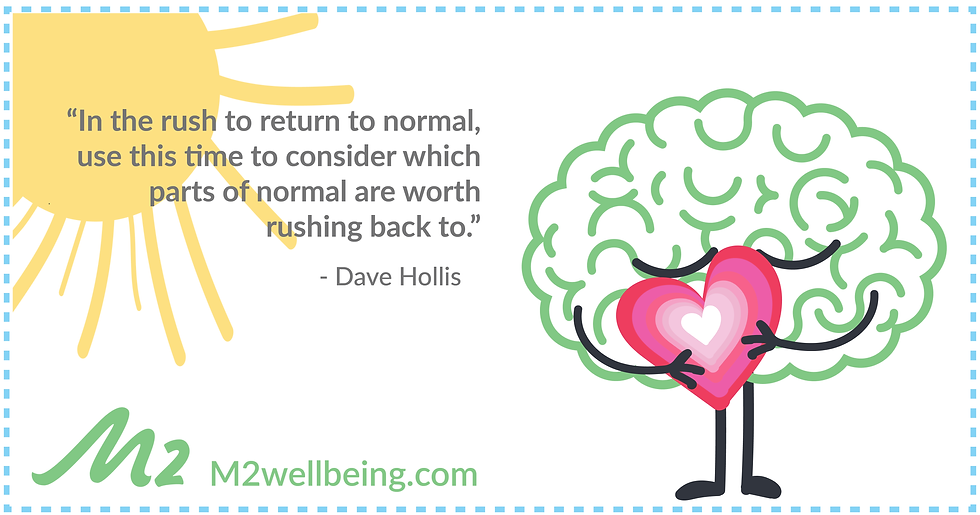Keep calm and quarantine on
- Susan West
- Apr 2, 2020
- 2 min read

Life sure hasn’t gotten any easier the last couple weeks. The “new normal” is characterized by uncertainty, heightened emotional states, and disruption to our routines. It’s a journey for us all that will require compassion, forgiveness, flexibility, and a willingness to start over every day.
We are all in this together! M2 Well-Being is here to support you.
To kick off April we’d like to offer a reflection tool, plus great resources to help sustain your mindfulness practice.
REFLECTION
Set aside 20 minutes of quiet, uninterrupted time, and use our Stop-Start-Continue worksheet to guide a reflection about what is working and what you would like to improve. Think about activities that have felt constructive (Continue); identify activities that have not been helpful (Stop); and create intentions around activities that may be nourishing to you (Start). Note them on the worksheet.
We’d like to suggest that you approach this reflection with two perspectives. The downloadable printout includes two worksheets so you can do both exercises:
While we are still operating under COVID-19 guidelines, what activities would you like to Start-Stop-Continue?
What have you learned from your new routine that you would like to apply in the future?

PRACTICES
The mindfulness community is generously offering many free, virtual practices and gatherings. We’ve compiled some great resources for you to explore.
ASU Center for Mindfulness, Compassion and Resilience offers virtual, group meditation practices each weekday from 12pm- 1pm. Join them live on YouTube. You can review topics for the week on their website.
Oprah & Deepak 21-Day Meditation Experience is offering “Finding Hope in Uncertain Times.” You can access daily meditations by downloading their app. Each day features a different message and mantra.
Ten Percent Happier brings a different, world-renowned teacher to your screen each day, live, at 12pm AZ time. If you miss it, you can also find recorded sessions you can access any time.
Dr. Jud’s Coronavirus Anxiety: Daily Updates offer brain science to help explain how and why we react to fear and anxiety the way we do, plus some practical advice to manage it-- all in less than 10 minutes.
Wishing you health and ease,
Susan

Comentários